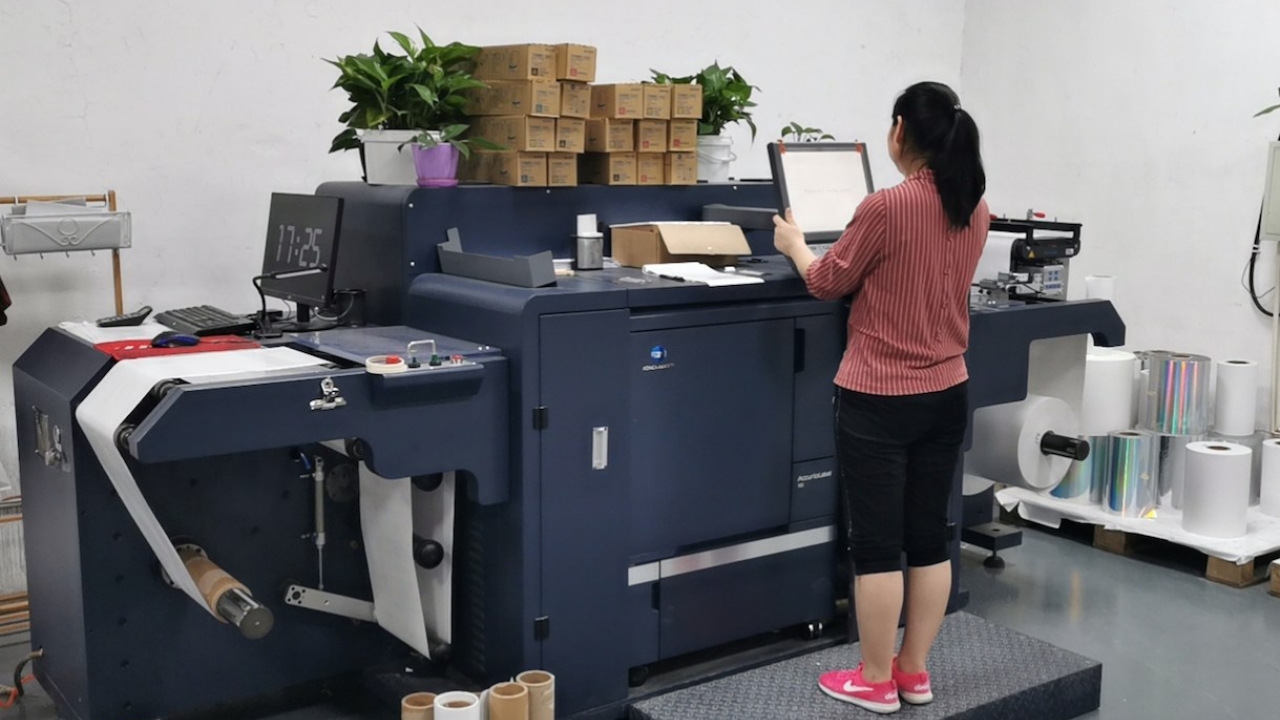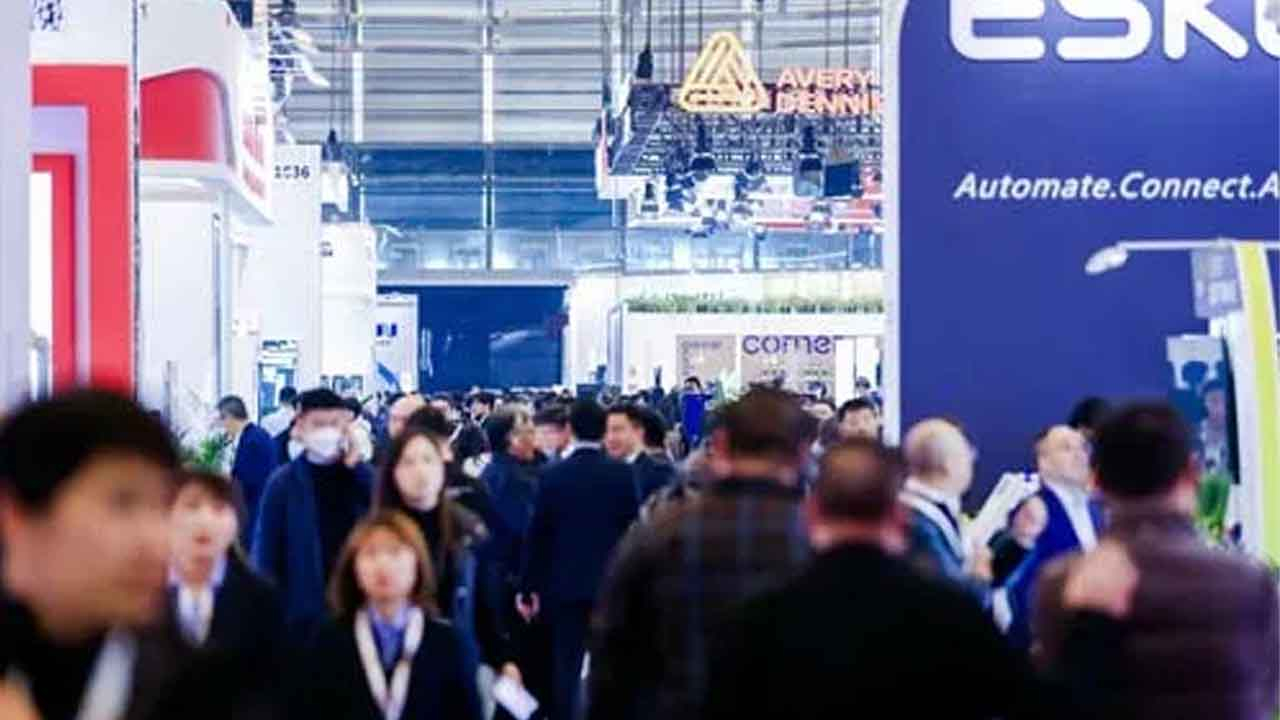Hebei Weiyuan plots digital path

Its products are targeted mainly at the pharmaceutical packaging sector. But the company’s key focus is on information technology, as its founder Zhai Dafa explains: ‘Informatization and digitization are the future trends of industrial development. Take label printing, for example, where the key driver for industrial change is still end user market demands. These include more and more end consumers searching for personalized and variable label products; brand owners speeding up development cycles when launching new products; and marketing channels becoming more diversified.
‘As a service provider, we need to understand and meet these demands and create new opportunities for our customers, combining information technology and printing technology to create new and higher value. That’s why we defined ourselves at the time of registration as a service company relying on information technology and digital production.’
Investing in digital
Zhai and his team spent almost two years studying the domestic digital printing market and researching different brands of digital press in the light of the overall direction and goals they had set.
‘Pharmaceutical packaging is our key product, including various medical adhesive labels and cartons,’ continues Zhai. ‘Pharma packaging is quite different from other packaging products. Drug brands require a rather simple printing process but emphasize functionality and price. So we firstly consider the cost/performance ratio when selecting and purchasing a digital press.
‘In addition, as a new entrant to digital printing and a small-sized printing company, we were aware we might encounter some problems, which meant we needed to be very cautious when investing. Some of the questions we asked included: will customers accept the quality and price of digital printed products? How do we get more purchase orders? How to staff and support the facility? Are there any more other additional items to buy except the press? Who will be responsible for after-sales facility maintenance? How about the repair and maintenance cost, and so on. Essentially, we were weighing again and again whether the investment in a digital press would meet our expectations or not.’
Though the purchasing decision was complex, the outcome has been positive. In March 2018, Hebei Weiyuan finally decided to buy a Konica Minolta AccurioLabel 190 label press, making it the first user of this machine in China.
Konica Minolta is an established leader in the commercial digital printing market. After entering the label market in 2016, it sold more than 500 AccurioLabel series label presses all over the world up to March of this year, making it one of the world’s leading digital label press manufacturers.
Digital powers manufacturing
As the first user of the AccurioLabel press in China, Hebei Weiyuan’s opinion is important: ‘It took us very little time to complete the installation and commissioning of this machine up to printing our first purchase order. It’s very simple in operation. Now almost all our colleagues in the digital printing division of our company can run this machine,’ said Zhai. ‘Simple and convenient’ are the two words used most often by Zhai when talking about the press.
During outbreak of Covid-19 at the beginning of 2020, this press fulfilled Hebei Weiyuan’s orders, including rush jobs for epidemic control materials. At that time, all nationwide road traffic was strictly controlled and many employees failed to return, but Hebei Weiyuan still managed to get vital orders of epidemic control packaging out of the door.
During this period, Hebei Weiyuan also felt deep empathy from Konica Minolta. ‘Konica Minolta voluntarily reduced 50 percent of our printing costs in February and March, which relieved to a large extent our financial pressures in the short term and let us know clearly the sincerity of Konica Minolta in fighting together with us in the hard times, giving us more confidence for the future.’
Konica Minolta’s nationwide service and after-sales service network also addressed Hebei Weiyuan’s concerns about the operational parameters of the press – for example direct printing on heat-resistant films. Hebei Weiyuan had many discussions with engineers from Konica Minolta about the stability and performance of these materials during their trial runs. ‘We hope Konica Minolta will make some more studies into the printability of the different label materials which we need to print as part of our wider product application range.’
At present, Hebei Weiyuan’s business is split between conventional and digital printing. After installation of the Konica Minolta AccurioLabel 190 label press, Hebei Weiyuan’s digital label business rose sharply, accounting for 10 percent in 2018 then 30 percent in 2019. Zhai estimates that digital printing output may account for 40 percent of the company’s business this year.
Added-value
‘Brand owners are no longer satisfied with “ordinary” service. They expect to get products fulfilling their design requirements, yet also expect to see more optimal label solutions within a reasonable budget,’ says Zhai. ‘The digital press has allowed us to get more involved at the design and specification stage of our customers’ projects.’ In addition to increasing the volume of labels printed, the service role – moving Hebei Weiyuan from ‘just another’ manufacturer to their customers’ partner – might be one of the greatest achievements of the digital investment.
Now Hebei Weiyuan has a new perspective on its previous concerns about the digital installation. ‘Compared with cost of conventional printing, the unit price of digitally printed products might be still a little high. However, when we consider the other costs including workshop, operators, production time and materials, the quote for our digital printing orders remains highly competitive.’
Although Hebei Weiyuan has far more production capacity on conventional presses compared to digital, its output is, in fact, roughly equal, with the digital press at full production capacity and with an average 80 percent uptime.
‘Moreover, brand owners are also gradually accepting the relatively high cost of digital printing,’ says Zhai. ‘They found no increase in the total cost after comprehensively considering the faster lead time and inventory management factors, and found a decreased cost for personalized and short-run printing compared to conventional.’
In addition, digital printing technology has brought plenty of new business for Hebei Weiyuan and extended its production into package printing.
‘With the personalized, flexible, prompt and convenient advantages of digital technology, we have developed a clientele of new label users and established a reliable and sound cooperative relationship with them. On this basis, they have gradually given us more packaging orders,’ confirms Zhai. ‘Most customers want to find a stable supplier who has the whole range of label and packaging solutions, which is conducive to more efficient management of suppliers, simplifying purchasing procedures and saving on communication costs. Especially for small brand owners, an integrated packaging solution supplier for their whole product line is usually the best choice: simple, easy and economic.’
After this first, highly positive digital experience, Zhai has decided to reduce investment on conventional presses and increase the size of its digital printing facility in the future. The Konica Minolta AccurioLabel 230 digital label press will be its next target.
Stay up to date
Subscribe to the free Label News newsletter and receive the latest content every week. We'll never share your email address.


